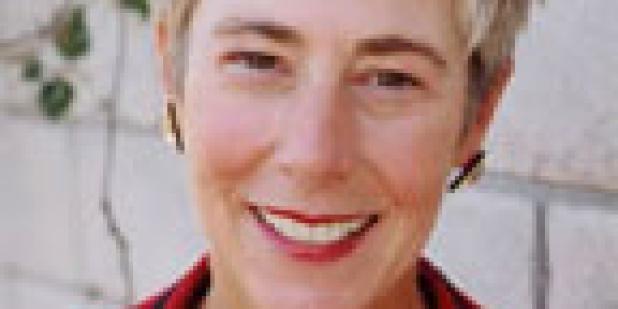Join us for a free one-day workshop for educators at the Japanese American National Museum, hosted by the USC U.S.-China Institute and the National Consortium for Teaching about Asia. This workshop will include a guided tour of the beloved exhibition Common Ground: The Heart of Community, slated to close permanently in January 2025. Following the tour, learn strategies for engaging students in the primary source artifacts, images, and documents found in JANM’s vast collection and discover classroom-ready resources to support teaching and learning about the Japanese American experience.
Who Made China's One-Child Policy?
Susan Greenhalgh examines China's one-child policy from 1978 - 1980.
Where

China's one-child policy is one of the most controversial social policies of all time. Focusing on the historic period 1978-80, when China was just re-entering the global capitalist system after decades of self-imposed isolation, this talk documents the extraordinary process by which a handful of leading aerospace engineers hijacked the population policymaking process to create a policy that treated people like missiles. It places these science- and policy-making practices in the broader contexts of the scientization and statisticalization of sociopolitical life, showing how certain numerical practices, techniques, and inscriptions – all borrowed from the West – created a story of the Chinese nation facing a crisis of modernization so serious that only a policy of one child for all could avert it. This new scientific mode of policymaking produced not only a notorious social policy, it yielded a new form of scientific reason in the regime and gave birth to a technoscientific state. Beyond the origins of the one-child policy, the talk delves into such larger issues as the nature of Chinese communist science, the East-west travels and translations of science, and the intimate times between science and the state in this rising global power. The talk is based on over twenty years of ethnographic, interview, and documentary research on China's population science and politics.
Susan Greenhalgh is Professor of Anthropology at the University of California at Irvine. Her books include "Governing China's Population: From Leninist to Neoliberal Biopolitics" (co-authored with Edwin A. Winckler, Stanford, 2005), "Under the Medical Gaze: Facts and Fictions of Chronic Pain" (California, 2001), and "Just One Child: Science and Policy in Deng's China" (forthcoming, California, January 2008). She is editor or co-editor of "Situating Fertility: Anthropology and Demographic Inquiry" (Cambridge, 1995) and "Contending Approaches to the Political Economy of Taiwan" (M.E. Sharpe, 1988). In 2002 she was awarded the prestigious Clifford C. Clogg Award for early career achievement by the Population Association of America and in 2005 her article "Missile Science, Population Science: The Origins of China’s One-Child Policy" was named runner-up for the China Quarterly’s Gordon White Prize for the most original article in contemporary China studies in that year. She also writes for a more popular audience. Her PBS essay, "China’s Future with Fewer Females," can be found at http://www.pbs.org/kqed/chinainside/women/population.html.
Co-sponsored by the UM East Asian Gender Forum.
Featured Articles
Please join us for the Grad Mixer! Hosted by USC Annenberg Office of International Affairs, Enjoy food, drink and conversation with fellow students across USC Annenberg. Graduate students from any field are welcome to join, so it is a great opportunity to meet fellow students with IR/foreign policy-related research topics and interests.
RSVP link: https://forms.gle/1zer188RE9dCS6Ho6
Events
Hosted by USC Annenberg Office of International Affairs, enjoy food, drink and conversation with fellow international students.
Join us for an in-person conversation on Thursday, November 7th at 4pm with author David M. Lampton as he discusses his new book, Living U.S.-China Relations: From Cold War to Cold War. The book examines the history of U.S.-China relations across eight U.S. presidential administrations.




